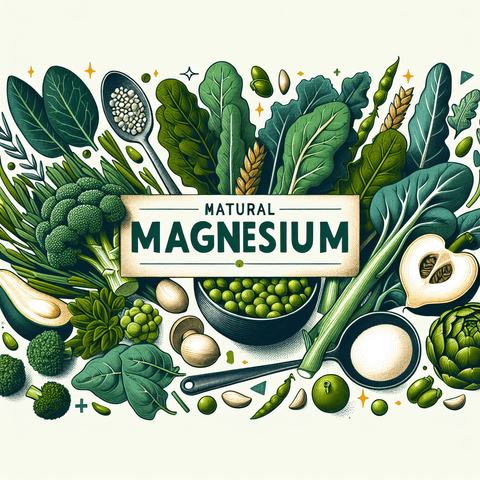Introduction
Omega-3 fatty acids are a group of essential polyunsaturated fats that play a pivotal role in human health, influencing virtually every major bodily function. These fats are considered "essential" because our bodies cannot produce them on their own—we must obtain them through diet or supplements. The most well-known forms of Omega-3s include eicosapentaenoic acid (EPA), docosahexaenoic acid (DHA), primarily found in marine oils, and alpha-linolenic acid (ALA), found in plant sources such as flaxseeds and chia seeds.
In the age of fast food and processed meals, nutrient gaps have become increasingly prevalent. As a result, Omega-3 supplements have surged in popularity among health-conscious individuals seeking to support their long-term wellness. Whether in capsules, softgels, liquids, or fortified foods, Omega-3s are now a staple in many people’s nutritional regimens.
This article explores the spectrum of health conditions that Omega-3 fatty acids help to fight or alleviate. From taming systemic inflammation and strengthening cardiovascular function to boosting cognitive ability and supporting mental wellness, Omega-3s pack a powerful protective punch. Continue reading to discover how integrating these vital fats into your diet—either through food, fortified products, or targeted supplements—can radically improve your overall health.
1. Omega 3 and Nutritional Supplements: Why They Matter
Omega-3s are sourced from both marine and plant origins. The most beneficial Omega-3s for human health—EPA and DHA—are primarily found in oily fish such as salmon, sardines, and mackerel. Algae also provide a plant-based marine source of EPA and DHA, making it a suitable alternative for vegetarians and vegans. ALA, on the other hand, is derived from plant-based foods like flaxseeds, chia seeds, and walnuts. However, the conversion of ALA into EPA and DHA in the human body is inefficient, making direct consumption of EPA and DHA through fish or algae supplements more reliable.
Within a balanced supplement regimen, Omega-3s serve as a foundational cornerstone supporting cardiovascular, neurological, and immunological health. When dietary intake falls short—whether due to restrictions like vegetarianism or limited access to fresh fish—supplementation becomes essential. Formulations often combine Omega-3s with other core nutrients such as Vitamin D, which helps regulate immune responses and calcium metabolism, creating synergistic effects that compound health benefits.
Combining Omega-3s with nutrients like Magnesium (for nervous system support) or Vitamin K (for blood and bone health) also enhances bodily functions. For instance, co-supplementation with Vitamin K2 may further reduce arterial stiffening, complementing Omega-3’s effect on endothelial function.
Supplementing Omega-3 improves overall nutrient absorption and ensures adequate intake, especially in those with dietary constraints or increased physiological need—athletes, pregnant women, elderly individuals, and children. Many turn to high-quality fish oil or vegan Omega-3 supplements, such as those offered on Topvitamine.com, to safeguard their health responsibly.
When choosing a supplement, purity, sustainability, and bioavailability should be top priorities. Look for third-party tested products free from harmful contaminants like mercury and PCBs, and ideally triglyceride-form fish oils, which are better absorbed by the body. The correct ratio of EPA to DHA also depends on the individual's health needs, so consult with a healthcare provider for tailored guidance.
2. Fighting Inflammation with Omega 3: The Natural Anti-Inflammatory Powerhouse
Inflammation is a natural, protective response of the immune system to injury or infection. While acute inflammation resolves quickly and aids in healing, chronic inflammation remains persistent and contributes to a wide range of health disorders, including arthritis, heart disease, metabolic syndrome, and neurodegeneration. Modern diets high in Omega-6 fatty acids and low in Omega-3s disproportionately fuel a pro-inflammatory environment in the body.
Omega-3s, particularly EPA and DHA, help restore balance by producing specialized lipid mediators such as resolvins and protectins—molecules involved in actively resolving inflammation. These compounds suppress the production of pro-inflammatory cytokines like TNF-alpha and interleukin-6 (IL-6), shown in numerous peer-reviewed studies to correlate with systemic inflammation.
Research suggests that Omega-3 supplementation may significantly reduce symptoms in inflammatory conditions like rheumatoid arthritis, inflammatory bowel disease, lupus, and even psoriasis. Clinical trials have also observed reduced joint stiffness, lower pain levels, and improved grip strength in rheumatoid arthritis patients taking daily fish oil supplements high in EPA.
The anti-inflammatory benefits aren’t confined to joint-related diseases. People with metabolic syndrome—a cluster of risk factors including abdominal fat, high blood pressure, and insulin resistance—see improvements in markers such as C-reactive protein (CRP) with Omega-3 supplementation. This underscores Omega-3’s systemic effect on low-grade inflammation associated with cardio-metabolic risk.
Incorporating anti-inflammatory Omega-3s into your diet involves eating fatty fish at least twice a week or taking a daily high-quality supplement. Cooking with flaxseed oil, adding chia seeds to smoothies, or snacking on walnuts are easy additions. Nonetheless, marine Omega-3s remain superior due to their more direct physiological effects.
Consider fortified foods or certified fish oil formulations, such as those found in Topvitamine's Omega-3 product selection, for a consistent and reliable intake. When consumed regularly, Omega-3s form a critical defense against the silent upheaval of chronic inflammation in the body.
3. Supporting Heart Health: How Omega 3 Protects Your Cardiovascular System
Heart disease remains the leading cause of death globally, but numerous epidemiological and clinical studies highlight Omega-3 fatty acids as potent allies in maintaining cardiovascular health. The American Heart Association recognizes that Omega-3s reduce specific cardiovascular risk factors—making them cornerstones of a heart-healthy nutritional strategy.
One of the most documented roles of EPA and DHA is lowering elevated triglyceride levels by 15% to 30%. High triglyceride concentrations are significant markers of heart disease and are influenced by factors including diet, insulin resistance, and genetics. Fish oil supplements with a high concentration of EPA offer some of the most effective natural interventions today.
In addition to reducing triglycerides, Omega-3s have modest effects in lowering blood pressure. This is achieved by improving endothelial function—the ability of blood vessels to relax and regulate pressure effectively—thereby promoting smoother blood flow and reducing the strain on the heart. Furthermore, Omega-3 fatty acids also help to reduce the aggregation of platelets, preventing the formation of clots that can lead to strokes or heart attacks.
DHA in particular plays a role in reducing resting heart rate and stabilizing irregular heart rhythms, protecting against atrial fibrillation and sudden cardiac death. It can also inhibit plaque formation in arteries—a major contributor to atherosclerosis. With regular intake, Omega-3s contribute to arterial elasticity, lowering the risk of vascular blockages without the side effects associated with synthetic medications.
To reap these cardiovascular benefits, adults are generally advised to consume at least 250–500 mg per day of combined EPA and DHA. Higher doses—under medical supervision—may be necessary for people with existing heart conditions or elevated triglyceride levels.
Consult quality sources like Topvitamine's Omega-3 lineup for premium formulations formulated to European standards. When used in conjunction with other essential heart-supporting nutrients such as Vitamin K2 and Magnesium, Omega-3s provide a comprehensive cardioprotective boost.
4. Enhancing Cognitive Function: Omega 3’s Vital Role in Brain Health
The brain is approximately 60% fat, and DHA forms a critical part of the structural matrix of neuronal membranes. This polyunsaturated fat is particularly concentrated in the cerebral cortex and retina, where it facilitates communication between nerve cells and supports the growth of neuronal synapses that underpin memory, focus, and learning.
Omega-3 deficiency is correlated with various cognitive impairments. Studies involving imaging and cognitive testing suggest that insufficient DHA in midlife is strongly linked to smaller brain volumes and poorer cognitive function in later years. This has massive implications for aging populations concerned with preventing neurodegenerative decline.
In children and young adults, adequate intake of Omega-3s has been shown to improve attention span, academic performance, and even behavioral conditions such as ADHD. Pregnant women are also encouraged to supplement with DHA, as a sufficient maternal supply is vital for fetal brain and visual development.
In older adults, preclinical and human studies continue to show that Omega-3s may support cognitive longevity. Supplementation is associated with reduced beta-amyloid plaques—hallmarks of Alzheimer’s disease—and improved performance in verbal recall and executive functioning tasks.
One notable long-term study revealed that people consuming Omega-3-rich diets had a 60% lower risk of developing dementia. Though not a cure, Omega-3s remain one of the most researched natural agents for preserving cognition and potentially reducing the likelihood of age-related mental decline.
In choosing supplements for cognitive enhancement, look for formulations rich in DHA, like those in the Omega-3 collection at Topvitamine. Combining DHA with other brain-supporting nutrients such as Vitamin D and Magnesium further enhances neuroprotective effects.
5. Promoting Mental Clarity: How Omega 3 Supports Mental Wellness and Focus
The connection between Omega-3 intake and mental health is one of the most profound examples of how diet influences brain function. Increasing evidence supports the role of EPA, in particular, in modulating serotonin and dopamine pathways to improve mood and alleviate symptoms of depression and anxiety.
EPA helps limit the overproduction of inflammatory cytokines linked to depression and neurochemical imbalances. Several meta-analyses confirm that Omega-3 supplementation reduces depressive symptoms, especially in individuals not responding well to conventional treatments. In fact, some psychiatric professionals now recommend Omega-3s as an adjunct therapy for mood disorders.
For anxiety sufferers, Omega-3s appear to dampen stress responsiveness by optimizing hippocampal neuroplasticity and controlling adrenal gland output during fight-or-flight responses. This creates a calming effect that supports both better sleep and emotional resilience.
Omega-3s are also gaining traction in treating developmental mental health concerns. Clinical trials in children with ADHD reveal that a daily intake of DHA and EPA significantly improves focus and behavioral regulation. Combined with professional guidance, these results offer a ray of hope for parents seeking drug-free interventions for their children.
Students, professionals, and seniors alike can benefit from Omega-3’s ability to enhance focus and memory. Data shows improvements in processing speed, multitasking, and attention span in subjects receiving Omega-3 supplementation over several weeks compared to placebo groups.
To strengthen mental performance, consider Omega-3 products containing a balanced blend of EPA and DHA. Browse options apt for mood and mental clarity within Topvitamine’s Omega-3 range. Supplementing alongside nutrients like Vitamin D—especially during darker months—further supports mood regulation and executive functioning.
6. Supporting Joint Health and Reducing Discomfort: Omega 3 as a Natural Joint Support
As we age or engage in strenuous physical activity, joint pain and stiffness can lead to debilitating discomfort and reduced mobility. Inflammatory joint conditions like osteoarthritis and rheumatoid arthritis are prevalent across populations, and many individuals are increasingly interested in natural alternatives to pharmaceutical anti-inflammatories.
Omega-3s offer a multifaceted approach to joint care. Their anti-inflammatory effects reduce the production of prostaglandins and leukotrienes—key compounds driving joint pain, swelling, and tissue breakdown. Regular intake of fish oil has been reported to decrease morning stiffness and improve walking pace in people living with arthritis.
In gout sufferers, Omega-3s may lower the frequency and intensity of flare-ups by modulating uric acid levels and inflammatory responses. For athletes or individuals recovering from injury, Omega-3s speed up muscle recovery and support collagen regeneration in cartilage and connective tissue.
Studies tracking patients over time show that those supplementing with Omega-3s reduced their reliance on nonsteroidal anti-inflammatory drugs (NSAIDs), highlighting their role as a complementary therapy in both autoimmune and mechanical joint irregularities.
Integrating Omega-3s into physical therapy plans amplifies recovery, especially when combined with targeted nutrients like Magnesium, which aids muscle relaxation and nerve coordination. Chronic joint conditions often require long-term treatment, making Omega-3s a safer strategy for extended use than many pharmacological options.
For optimal joint support, choose third-party tested supplements with transparent EPA and DHA ratios. The Topvitamine Omega-3 assortment includes a variety of formulations suitable for general wellness or specialized symptoms.
Conclusion
Omega-3 fatty acids provide crucial support across multiple vital functions, cementing their role as a pillar in preventive and integrative health strategies. From soothing systemic inflammation to bolstering cardiovascular integrity, enhancing brain function, elevating mental wellbeing, and fostering joint comfort, Omega-3s fight a wide array of physiological stressors.
Consistently choosing high-quality Omega-3 products—rigorously tested for purity and ethically sourced—ensures you obtain maximum benefit without adverse health impacts. Top suppliers like Topvitamine.com provide well-curated Omega-3 supplements tailored to specialized health needs and compliant with EU safety standards.
To maintain a state of long-term wellness, integrate Omega-3s alongside complementary vitamins and minerals such as Vitamin C, Vitamin D, and Magnesium. Balancing your intake with Omega-6 fatty acids ensures hormonal equilibrium and optimal cellular performance.
Prioritize these essential fats in your dietary practice to experience more energy, better clarity, fewer aches, and comprehensive disease prevention.
Q&A Section
Q1: What are the primary health benefits of Omega-3 fatty acids?
Omega-3s help fight inflammation, reduce triglycerides, support heart health, improve cognitive function, balance mood, and relieve joint discomfort.
Q2: How much Omega-3 should I take daily?
The general recommendation for healthy adults is 250–500 mg of combined EPA and DHA per day. Higher doses may be needed for certain conditions under medical guidance.
Q3: Can I get enough Omega-3s from food?
While fatty fish like salmon are rich sources, many people fall short of recommended intake levels, making supplementation beneficial—especially for vegetarians or those who avoid fish.
Q4: Are plant-based Omega-3s as effective as fish oil?
ALA from plants converts inefficiently to EPA and DHA. Algal oil is a viable vegan alternative that delivers usable EPA and DHA directly.
Q5: Where can I buy high-quality Omega-3 supplements?
Trusted stores like Topvitamine.com offer third-party-tested, sustainably sourced Omega-3 supplements tailored to different health needs.
Important Keywords
- Omega-3 fatty acids
- EPA and DHA
- Inflammation relief
- Heart health support
- Cognitive enhancement
- Mental clarity
- Joint health supplement
- Fish oil capsules
- Plant-based Omega-3
- Anti-inflammatory nutrients



